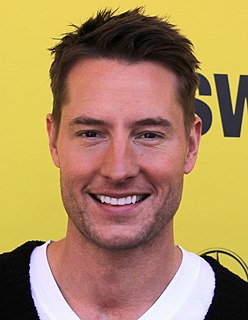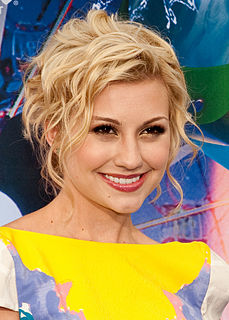A Quote by Robin Wasserman
Teen fiction should be about teenagers - no matter how many arguments there are about what YA lit should be, this seems like the one thing we can all agree on.
Related Quotes
As someone who writes and teaches YA fiction, I spend a lot of time trying to define its character and readership, and I don't think I'm alone - genres are all about boundary drawing, and the YA genre is, in a lot of ways, about carving out boundaries around adolescence, a space for teenagers to do teenage things.
At 36, I think I was pretty happy [actually], but here's the thing that I think happens... you're expected to be somewhere at 36, and there's that feeling: At this particular age - especially for women for God's sake - you should have this many kids, you should have a husband, or you should have this... and it's overwhelming. So that perpetuates the feeling that no matter where you are, no matter how much money you have, no matter how many kids you have, no matter how great they're doing, whether you want kids or not, married or not, it doesn't matter - you feel behind.
First of all, a giant corporation probably shouldn't be being hacked by teenagers. I put that on the corporation, not the teenagers. Teenagers are going to do what teenagers are going to do - rebelling. But if they're able to hack a big corporation, that seems like the corporation should be better at security.
You can't show up on set and expect it all to come together. You have to have a plan, much like how the director can't just show up and go, well, where should I put the camera? That is gonna determine how it is lit, you should have already been in the room looking at it earlier, pre-lit the room, you know there is a lot of prep that goes into it, so it is the same thing with acting. You can't just show up.
The movement for women's liberation was about an emotional transformation, an explosion, a feeling all over the country that things must be different, and ideas about how they should be. I think fiction can capture that kind of thing better than other genres because in fiction you can explore the feelings of your characters - the before and the after.
We must speak first about the division of land and about those who cultivate it: who should they be and what kind of person? We do not agree with those who have said that property should be communally owned, but we do believe that there should be a friendly arrangement for its common use, and that none of the citizens should be without means of support.
The thing about science-fiction fans and "Star Wars" fans is they're very independent-thinking people. They all think outside the box, but they all have very strong ideas about what should happen, and they think it should be their way. Which is fine, except I'm making the movies, so I should have it my way.
I agree with a lot of the points in Taleb's book, but I don't agree with many of his conclusions. It seems to me that he rightly points out that risk managers miss a lot of the risks, but the conclusion is that he draws, is that we should abandon risk management, whereas my conclusion is we should improve it.
No matter how many people try, no matter how many fancy songwriters in Los Angeles try to break it down to a formula... to an extent, there isn't a science to writing great songs, I suppose. For me, it's always about melody - it doesn't matter what genre of music you're writing, if there's a strong melodic thing somewhere, whether that's in a vocal or in a guitar part or a sample. Something that sticks in your brain, that seems to be something that works.






































